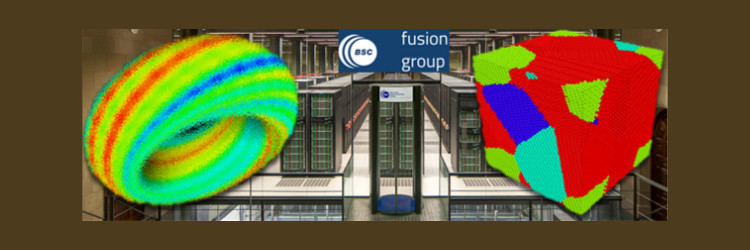
Are you interested in collaborating with our Fusion group at Barcelona Supercomputing Center (BSC) during July and August 2021? PRACE Summer of HPC 2021 is now open for applications to late-stage undergraduate and Master’s students. The deadline for applications is March 15, 2021.
In this edition, BSC offers six projects to join. One of them is in our Fusion Group under the supervision of Dr Julio Gutiérrez and our group leader Prof. Dr Mervi Mantsinen.
The project is on computational atomic-scale modelling of materials for fusion reactors and it contributes to the efforts to mitigate climate change which is one of the most important humankind challenges at the time.

Since the 19th century, fossil fuels’ global use has increased and dominated world energy consumption and supply. The rapid rise of global energy consumption and the cumulative global CO2 emissions from burning fossil fuels play a critical role in climate change. Nuclear fusion is one of the most promising alternatives for generating large-scale sustainable and carbon-free energy. Fusion is the process that takes place in the sun and generates enormous quantities of heat and light.
Since the 1950s, researchers have tried to replicate nuclear fusion on Earth, a historically coined process as “building the sun in a box”. However, as one can imagine, the conditions in a fusion reactor are quite harsh. Hydrogen gas in the reactor is heated at a very high temperature (over 108 °C) until it forms a plasma; controlled by powerful magnets, the atoms fuse and release energy. Unfortunately, due to the extreme complexity and conditions required to achieve a controlled fusion reaction, no design has achieved positive net energy gain.
The development of new materials is key to meeting and overcoming nearly all the world’s challenges. The study of suitable materials with the desirable chemical and physical properties to be used on the reactor walls is one of the challenges that still need to be overcome. In examples like this one, where experimental data are not available or difficult to obtain, computer simulations are critically important. Furthermore, the continual development of increasingly powerful computers makes discoveries in materials science more achievable than ever before.
In our PRACE Summer of HPC 2021 project, we will use classical molecular dynamics simulations to study the fundamental properties of metals at the atomic scale. We will study materials that can be potentially used as protective layers in fusion reactors. The outcomes from this study will be key for the further development of more resistant materials to be used in fusion technologies.
For more details, please check here. To apply, please follow this link.
